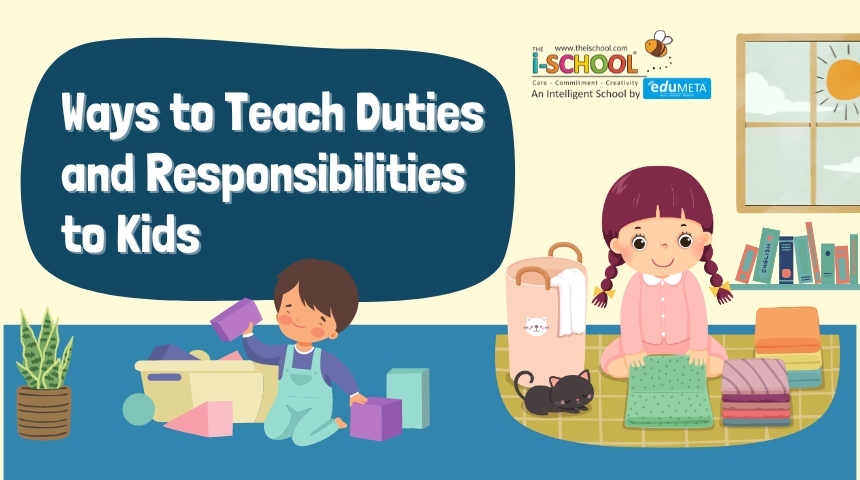Ways to Teach Duties and Responsibilities to Kids

Teaching kids about duties and responsibilities is crucial for their development into responsible and dependable adults. Here are some effective ways to instill these values in children:
1. Start with Age-Appropriate Chores
Assigning simple chores based on your child’s age is a great way to introduce the concept of responsibility. For younger kids, tasks like picking up toys or helping to set the table are manageable. As they grow, you can increase the complexity of their responsibilities, such as helping with laundry or preparing a simple meal.
2. Be a Role Model
Children learn a lot by observing their parents and caregivers. Demonstrate responsibility in your daily actions—whether it’s being punctual, keeping commitments, or taking care of household duties. When kids see you taking your responsibilities seriously, they are more likely to do the same.
3. Create a Routine
Establishing a daily routine helps children understand their responsibilities and manage their time effectively. Include tasks such as making the bed, brushing teeth, and homework time in their daily schedule. A consistent routine reinforces the idea that certain duties must be done regularly.
4. Use Positive Reinforcement
Acknowledge and praise your child when they fulfill their responsibilities. Positive reinforcement, like verbal praise or a small reward, encourages them to keep up the good work. It helps them associate completing tasks with a sense of accomplishment and pride.
5. Teach Accountability
If a child fails to complete a task or does it poorly, discuss the consequences with them. Explain how their actions affect others and why it’s important to take their responsibilities seriously. Teaching accountability helps kids understand that their actions have consequences, both positive and negative.
6. Encourage Decision-Making
Involve your child in decision-making processes related to their responsibilities. For example, let them choose between two chores or decide how to organize their room. Allowing them to make choices gives them a sense of control and reinforces their commitment to fulfilling their duties.
7. Make Responsibilities Fun
Turn responsibilities into fun activities to keep kids engaged. Create a chore chart with stickers, or make a game out of completing tasks. For instance, you can time how quickly they can clean their room or have a family competition for who can complete their chores first.
8. Teach the Importance of Helping Others
Instill the value of helping others by encouraging your child to assist family members or participate in community service. This teaches them that responsibility extends beyond themselves and includes being considerate and helpful to others.
9. Set Clear Expectations
Clearly communicate your expectations regarding duties and responsibilities. Explain what needs to be done, how it should be done, and when it needs to be completed. Setting clear expectations helps children understand what is required of them.
10. Be Patient and Consistent
Learning responsibility is a gradual process, and mistakes are part of that learning journey. Be patient and consistent in your approach. Regularly reinforce the importance of duties and gently remind your child when they forget or fall short.
11. Encourage Responsibility for Personal Belongings
Teach your child to take care of their own belongings, such as toys, clothes, and school supplies. Encourage them to clean up after themselves and to keep their things organized. This helps them develop a sense of ownership and pride in their possessions.
12. Discuss the Concept of Duty
Have open conversations about what duty means and why it’s important. Use examples from their daily life or stories to illustrate how fulfilling duties benefits themselves and others. Understanding the bigger picture helps children appreciate the value of being responsible.
13. Lead by Example in Community Involvement
Participate in community activities or volunteer work as a family. This shows children the importance of contributing to the community and taking responsibility for the well-being of others.
14. Gradually Increase Responsibilities
As your child grows and becomes more capable, gradually increase the level of their responsibilities. This could include managing a small budget, taking care of a pet, or helping with younger siblings. Gradual increases help them build confidence and competence in handling more complex tasks.
15. Foster Independence
Encourage your child to complete tasks on their own, even if it takes longer or isn’t perfect. Fostering independence helps them take ownership of their responsibilities and builds their self-reliance.
By using these strategies, you can help your child develop a strong sense of duty and responsibility that will serve them well throughout their lives.
